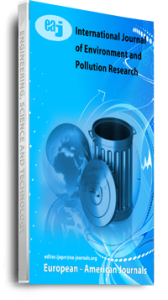This study examined the perceived effect of waste generation on climate change among rural households in Oyo state, Nigeria. Two local government areas were randomly selected from the three senatorial districts in Oyo state from which five villages each were randomly selected. A total of 15 households across the selected villages were randomly selected to give a total sample size of 150 respondents. Data were collected through the use of interview schedule and analyzed using frequencies and percentages to present the descriptive analysis, while Pearson Product Moment Correlation and Chi- Square were used for inferential analysis. The findings of the study revealed that the average age of the respondents in the study area was 37 years, as majority (75.0%) were married and had no formal education (63.2%). Majority (90.0%) were farmers, had small farm size (86.1%) of range 1-5 acres. Kitchen waste (94.7%), crop waste (88.8%) and animal waste (65.3%) were the major waste generated within the households in the study area. Most (92.0%) of the respondents disposed their wastes making use of sacks (83.3%) 62.0% and 74.7% dispose their waste into drainage channels (62.0%) and flowing stream (74.7%) respectively. Few (14.7%) obtained information on waste management practices through the radio. Majority (78.2%) had low knowledge level on waste management practice and wrong perception (79.2%) of the effects of waste generation to climate change. Level of education (ᵪ2 = 9.273, sources of information on waste management practices (r = 0.325) and knowledge on waste management practices (r = 0.276) have influence on the perceived effect of waste generation to climate change. There is the need to create awareness on the environmental effect of waste and inappropriate waste management practices among rural households.
Keywords: Climate Change, Knowledge on Waste Management, Perceived Effect of Waste, Waste Generation, Waste Management, Waste.

